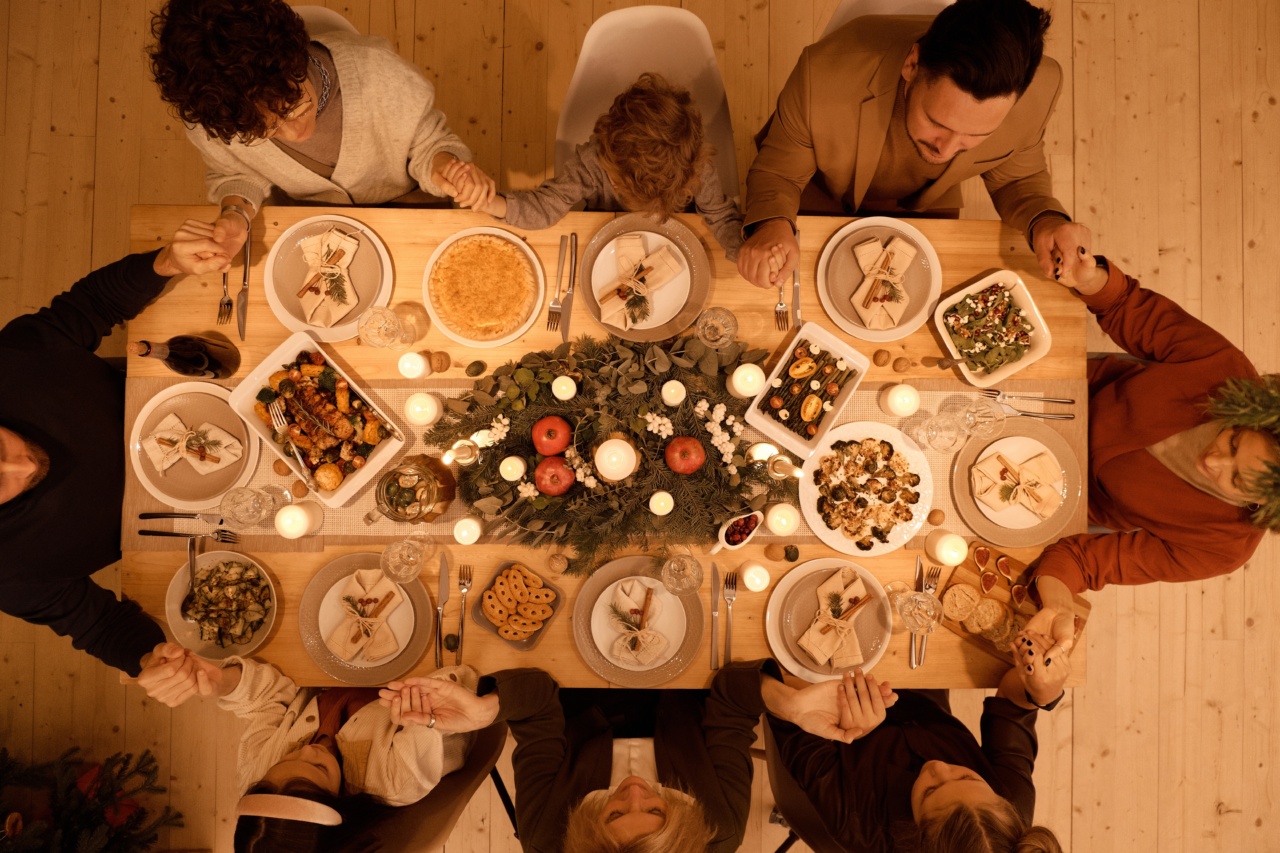Hiccups can be an irritating and sometimes embarrassing experience. They are sudden, involuntary contractions (spasms) of the diaphragm muscle. The diaphragm muscle is responsible for controlling one’s breathing.
When hiccups occur, the diaphragm muscle contracts abruptly, causing the vocal cords to close, resulting in the characteristic “hic” sound. While hiccups usually disappear on their own after a short period, some people may experience hiccups specifically after eating. In this article, we will explore the possible reasons why this happens and discuss potential remedies.
1. Eating too quickly
Eating too quickly is a common cause of hiccups after meals. When you consume food at a rapid pace, you tend to swallow a lot of air along with it. This excess air can stimulate the diaphragm muscle, triggering hiccups.
To avoid this, try to eat slowly and chew your food properly before swallowing. Taking small sips of water between bites can also help to prevent hiccups.
2. Overeating or consuming large meals
Overeating or consuming large meals can put pressure on the diaphragm and irritate it, leading to hiccups. When the stomach is overly full, it can cause reflux, where the stomach acid flows back into the esophagus.
The reflux and irritation can then trigger the diaphragm spasms. To prevent hiccups associated with overeating, practice portion control and avoid consuming excessively large meals. Eating smaller, more frequent meals throughout the day may also help alleviate hiccups.
3. Acid reflux or heartburn
Acid reflux or heartburn, a condition where stomach acid flows back into the esophagus, can also be a potential cause of hiccups after eating. The acid irritates the diaphragm, leading to spasms and hiccups.
If you frequently experience hiccups along with symptoms of acid reflux or heartburn, it is advisable to consult a healthcare professional for diagnosis and appropriate treatment.
4. Certain foods and beverages
Some individuals may find that certain foods or beverages trigger hiccups after consumption. Carbonated beverages, spicy foods, alcohol, and hot liquids are known to be common culprits.
These substances can irritate the diaphragm or stimulate the nerve pathways associated with hiccup reflexes. Avoiding or minimizing the intake of these trigger foods and beverages may help reduce the occurrence of post-meal hiccups.
5. Eating while experiencing stress or anxiety
Emotional factors, such as stress or anxiety, can sometimes contribute to hiccups after eating. When we are stressed or anxious, our breathing pattern can become irregular, leading to hiccups.
Incorporating relaxation techniques, such as deep breathing exercises or meditation, before meals can help reduce stress-related hiccups. Additionally, creating a calm and peaceful environment during mealtime can also promote better digestion and minimize hiccups.
6. Gastroesophageal reflux disease (GERD)
Gastroesophageal reflux disease (GERD) is a chronic condition where the stomach acid frequently flows back into the esophagus. GERD can cause persistent hiccups, particularly after eating.
Along with hiccups, individuals with GERD may experience symptoms such as heartburn, chest pain, and difficulty swallowing. If you suspect you have GERD, it is crucial to consult a healthcare professional for proper diagnosis and management.
7. Hiatal hernia
A hiatal hernia occurs when a portion of the stomach pushes through the diaphragm and into the chest cavity. This condition can cause hiccups, especially after eating.
Hiatal hernias can increase the likelihood of acid reflux and irritation of the diaphragm, leading to hiccups. If you suspect you have a hiatal hernia, it is essential to seek medical attention for evaluation and appropriate treatment.
8. Nerve irritation or damage
In some cases, hiccups after eating may be due to nerve irritation or damage. The phrenic nerve, which controls the diaphragm, can become inflamed or compressed, triggering spasms and hiccups.
Nerve damage or irritation can result from various factors, including surgical procedures, injuries, or underlying medical conditions. If you suspect nerve-related issues, it is recommended to consult with a healthcare professional for further investigation and management.
9. Underlying medical conditions
There are certain underlying medical conditions that can cause hiccups after eating. Conditions such as diabetes, kidney disease, liver disease, and digestive disorders like gastritis or ulcers may contribute to the occurrence of hiccups.
If you experience frequent or persistent hiccups after meals, especially along with other concerning symptoms, it is essential to consult a healthcare professional for evaluation and proper diagnosis.
10. Medications
Some medications can have hiccups listed as a side effect. Certain drugs that affect the nervous system, such as benzodiazepines, opioids, and corticosteroids, have been associated with causing hiccups.
If you suspect that your hiccups are medication-related, it is important to speak with your healthcare provider. They may be able to adjust your medication or provide alternative treatment options.






























